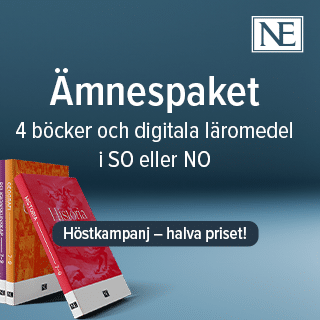Whores, hijabs and heart emojis: Affective explorations of aggression against girls online
Kim R. Sylwander belyseri sin avhandling hur nätkränkningar och hat är tätt sammankopplat med vänskapsgörande och stöd bland ungdomar på nätet.
Kim R. Sylwander
Professor Lucas Gottzén, Stockholms universitet Docent Linn Sandberg, Stockholms universitet
Professor Jessica Ringrose, Institute of Education, University College London
Stockholms universitet
2020-10-09
Whores, hijabs and heart emojis: Affective explorations of aggression against girls online
Barn- och ungdomsvetenskapliga institutionen
Whores, hijabs and heart emojis: Affective explorations of aggression against girls online
This netnography studies the interactions of 150 interconnected users aged between 11 and 15 years old on a popular social networking site (SNS) among youth in Sweden. More specifically, the thesis explores articulations of and responses to aggression that target young girls online. Adopting an affect theoretical approach inspired by Gilles Deleuze and Félix Guattari’s philosophy and feminist materialist scholarship on youth, the thesis examines how bodies, objects and technologies encounter and affect each other identifying how girls’ capacities are limited and increased through aggressive exchanges online. This compilation thesis consists of an introduction and three empirical articles.
The first article draws on the concept of affective atmospheres to explore the users’ articulated experiences of aggressive practices in this online space. The findings suggest that what the youth framed as ‘hate’ worked through an affective regime which hinged on temporalized norms tied to notions of age and bodily growth, that is, through heteronormative expectations of femininity, masculinity, sexuality and age-appropriateness. The article details how affordances such as anonymity facilitated and intensified the circulation of hate, feeding into an atmosphere of constant risk. In this specific online context, sexualized aggression seemed to be normalized and expected, but was nonetheless also troubled and fiercely resisted by the girls that were targeted and their peers.
The second article explores the affectivity of the sexualized epithet ‘whore’ in the users’ interactions. The findings illustrate the ambiguous, messy and entangled ways that slut-shaming and sexualized name-calling worked to inhibit girls’ affective capacities, and how acts of individual and collective resistance opened up new potential sexual subjectivities. The analysis depicts how users’ counter-aggression to sexualized name-calling adopted a ‘post-feminist logic’ that supported the continued policing of girls.
The third article traces how racial minority girls and their peers responded to and resisted racialization and racist aggression. The findings elucidate how racist events affectively worked to limit racialized girls’ capacities to act, but also sparked various forms of resistance that were facilitated by the materiality and affordances of the SNS. The analysis further illustrates how users rejected, re-appropriated and renegotiated racist assemblages where differing racialized figures were affectively produced and enforced in direct and indirect ways. The article thus sheds light on resistance not as a conscious act by an individual agent but as being contingent on the assemblage relations within which users were embedded.
In conclusion, this thesis illustrates how the intensification of affect in this online space hinged on intersections of identity categories such as sexuality, gender, age, class, race and religion, which limited and enhanced the girls’ capacities to act, feel and affect in various ways. The thesis further shows how technological affordances facilitated the circulation and intensification of aggression but also how they worked to facilitate counteraggression, resistance and a culture of support. The thesis thus sheds light on how online contention works to condition girls’ everyday lives online across a range of social categories and inequalities in temporalized ways, yet also how violent practices are inextricable from love and friendship.
Relaterade länkar

Fritidshem
 Åk F–6
Åk F–6 Matematikångest
 Åk 4–Vux
Åk 4–Vux 






